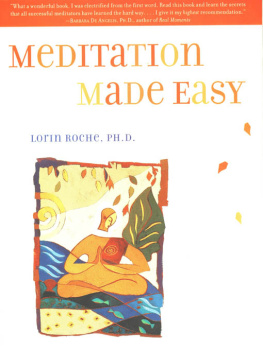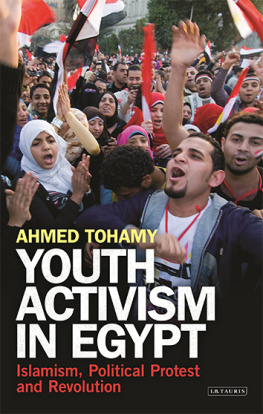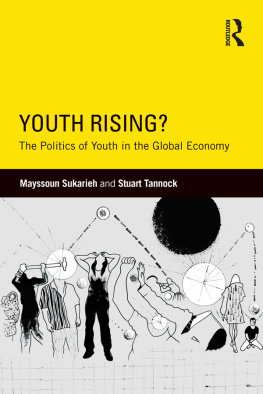Roche - Domesticating youth: youth bulges and their socio-political implications in Tajikistan
Here you can read online Roche - Domesticating youth: youth bulges and their socio-political implications in Tajikistan full text of the book (entire story) in english for free. Download pdf and epub, get meaning, cover and reviews about this ebook. City: Tajikistan, year: 2016, publisher: Berghahn Books, genre: Politics. Description of the work, (preface) as well as reviews are available. Best literature library LitArk.com created for fans of good reading and offers a wide selection of genres:
Romance novel
Science fiction
Adventure
Detective
Science
History
Home and family
Prose
Art
Politics
Computer
Non-fiction
Religion
Business
Children
Humor
Choose a favorite category and find really read worthwhile books. Enjoy immersion in the world of imagination, feel the emotions of the characters or learn something new for yourself, make an fascinating discovery.

Domesticating youth: youth bulges and their socio-political implications in Tajikistan: summary, description and annotation
We offer to read an annotation, description, summary or preface (depends on what the author of the book "Domesticating youth: youth bulges and their socio-political implications in Tajikistan" wrote himself). If you haven't found the necessary information about the book — write in the comments, we will try to find it.
Domesticating youth: youth bulges and their socio-political implications in Tajikistan — read online for free the complete book (whole text) full work
Below is the text of the book, divided by pages. System saving the place of the last page read, allows you to conveniently read the book "Domesticating youth: youth bulges and their socio-political implications in Tajikistan" online for free, without having to search again every time where you left off. Put a bookmark, and you can go to the page where you finished reading at any time.
Font size:
Interval:
Bookmark:
Domesticating Youth
Integration and Conflict Studies
Published in Association with the Max Planck Institute for Social Anthropology, Halle/Saale
Series Editor: Gnther Schlee, Director of the Department of Integration and Conflict at the Max Planck Institute for Social Anthropology
Editorial Board: Brian Donahoe (Max Planck Institute for Social Anthropology), John Eidson (Max Planck Institute for Social Anthropology), Peter Finke (University of Zurich), Joachim Grlich (Max Planck Institute for Social Anthropology), Jacqueline Knrr (Max Planck Institute for Social Anthropology), Bettina Mann (Max Planck Institute for Social Anthropology), Stephen Reyna (Max Planck Institute for Social Anthropology)
Assisted by: Cornelia Schnepel and Viktoria Zeng (Max Planck Institute for Social Anthropology)
The objective of the Max Planck Institute for Social Anthropology is to advance anthropological fieldwork and enhance theory building. Integration and conflict, the central themes of this series, are major concerns of the contemporary social sciences and of significant interest to the general public. They have also been among the main research areas of the institute since its foundation. Bringing together international experts, Integration and Conflict Studies includes both monographs and edited volumes, and offers a forum for studies that contribute to a better understanding of processes of identification and inter-group relations.
Volume 1
How Enemies are Made: Towards a Theory of Ethnic and Religious Conflicts
Gnther Schlee
Volume 2
Changing Identifications and Alliances in North-East Africa Vol.I: Ethiopia and Kenya
Edited by Gnther Schlee and Elizabeth E. Watson
Volume 3
Changing Identifications and Alliances in North-East Africa Vol.II: Sudan, Uganda and the Ethiopia-Sudan Borderlands
Edited by Gnther Schlee and Elizabeth E. Watson
Volume 4
Playing Different Games: The Paradox of Anywaa and Nuer Identification Strategies in the Gambella Region, Ethiopia
Dereje Feyissa
Volume 5
Who Owns the Stock? Collective and Multiple Forms of Property in Animals
Edited by Anatoly M. Khazanov and Gnther Schlee
Volume 6
Irish/ness is All Around Us: Language Revivalism and the Culture of Ethnic Identity in Northern Ireland
Olaf Zenker
Volume 7
Variations on Uzbek Identity: Strategic Choices, Cognitive Schemas and Political Constraints in Identification Processes
Peter Finke
Volume 8
Domesticating Youth: The Youth Bulge and its Socio-Political Implications in Tajikstan
Sophie Roche
Volume 9
Creole Identity in Postcolonial Indonesia
Jacqueline Knrr
Volume 10
Friendship, Descent and Alliance in Africa: Anthropological Perspectives
Edited by Martine Guichard, Tilo Grtz and Youssouf Diallo
Volume 11
Masks and Staffs: Identity Politics in the Cameroon Grassfields
Michaela Pelican
Volume 12
The Upper Guinea Coast in Global Perspective
Edited by Jacqueline Knrr and Christoph Kohl
Volume 13
Staying at Home: Identities, Memories and Social Networks of Kazakhstani Germans
Rita Sanders
Volume 14
City of the Future: Built Space, Modernity and Urban Change in Astana
Mateusz Laszczkowski
Youth Bulges and their Socio-political Implications in Tajikistan
Sophie Roche

Published in 2014 by
Berghahn Books
www.berghahnbooks.com
2014, 2016 Sophie Roche
First paperback edition published in 2016
All rights reserved. Except for the quotation of short passages for the purposes of criticism and review, no part of this book may be reproduced in any form or by any means, electronic or mechanical, including photocopying, recording, or any information storage and retrieval system now known or to be invented, without written permission of the publisher.
Library of Congress Cataloging-in-Publication Data
Roche, Sophie.
Domesticating youth: youth bulges and their socio-political implications in Tajikistan / Sophie Roche.
pages cm. -- (Integration and conflict studies; volume 8)
Includes bibliographical references.
ISBN 978-1-78238-262-1 (hardback) -- ISBN 978-1-78533-212-8 (paperback) -- ISBN 978-1-78238-263-8 (ebook)
1. Youth--Tajikistan. 2. Youth--Tajikistan--Social conditions. 3. Age distribution (Demography)--Tajikistan. I. Title.
HQ799.T3R63 2014
305.23509586--dc23
2013042952
British Library Cataloguing in Publication Data
A catalogue record for this book is available from the British Library
ISBN: 978-1-78238-262-1 hardback
ISBN: 978-1-78533-212-8 paperback
ISBN: 978-1-78238-263-8 ebook
, Gnther Schlee
Figures
Tables
Foreword
Gnther Schlee
In all sorts of statistics, including demographic ones, social constructs and givens that resist being constructed and deconstructed interpenetrate. Hard-core constructivists would always claim that statistics do not reflect numbers but create them. In fact both processes are at work. Statistics make us observe things we would not otherwise have observed or, at least, we would not have counted and calculated them as averages, such as pets per household or per capita beer consumption. But statistical calculations of such frequencies for these units might appear artificial to many. When it comes to pets, we normally do not add canaries to dogs. Nor do we think about the many households without any pets; and we may forget to ask how household splitting the tendency of more and more people to live alone or in twos rather than in larger units influences the average number of pets per household. When we think of beer consumption, we do not have old ladies and little babies in mind, who are included in nationwide statistics, but the prototypical beer drinker, the (more or less) adult male. How much less beer we drink if we include all the babies who drink no beer at all in calculating our average consumption! Such thoughts rarely occur to us, unless we are already familiar with statistics.
So, the units we include in our count are a matter of choice and plausibility, and many of these units are not simply there but have to be agreed on. To give just one more example: There are no lower-income families unless we have a definition of the family and a way of deciding which kind of income to call low; and, even if we do, such categories may misdirect our perceptions. Would members of a rural family with a low monetary income but a large vegetable garden and lots of rabbits (not as pets but for food) agree that they are poor, as such a categorization implies?
I am fully aware that statistics about household pets, preferably broken down by species and other categories, can be of great interest to pet shops and animal-feed producers and that the marketing branches of big breweries have good use for figures on per capita beer consumption in nation-to-nation comparison. Also statistics about poverty are important, even if they can be misleading. I merely want to point out that these examples reflect a way of looking at things that is unfamiliar to those without an earlier exposure to statistics. The categories that are used here are constructs. They are products of a whole series of choices made about definitions.
Next pageFont size:
Interval:
Bookmark:
Similar books «Domesticating youth: youth bulges and their socio-political implications in Tajikistan»
Look at similar books to Domesticating youth: youth bulges and their socio-political implications in Tajikistan. We have selected literature similar in name and meaning in the hope of providing readers with more options to find new, interesting, not yet read works.
Discussion, reviews of the book Domesticating youth: youth bulges and their socio-political implications in Tajikistan and just readers' own opinions. Leave your comments, write what you think about the work, its meaning or the main characters. Specify what exactly you liked and what you didn't like, and why you think so.









